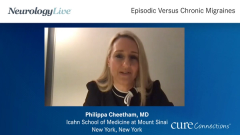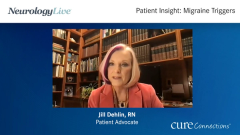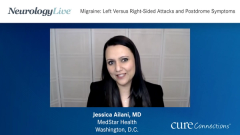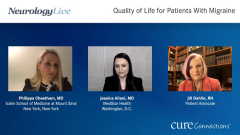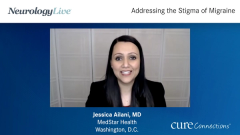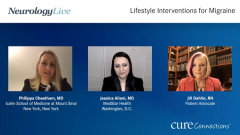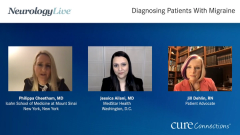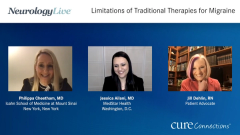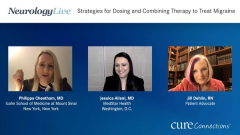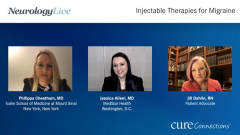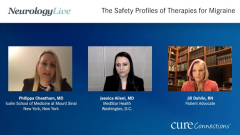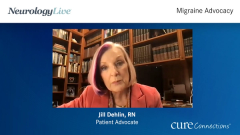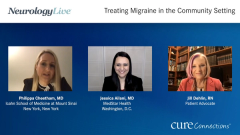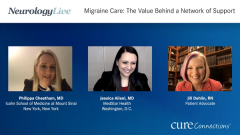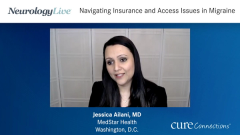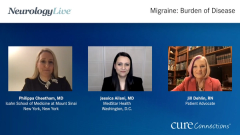
Treating Migraine in the Community Setting
Advice to community neurologists and other care providers who may treat patients with migraine in the community setting on incorporating newer therapies, such as CGRP inhibitors, into practice, and a list of reputable resources where patients can turn for additional support.
Episodes in this series

Philippa Cheetham, MD: Forgive me if I’m putting you on the spot here, but in relation to this newer class of drugs that have only been on the menu in the last few years—if I am a migraine sufferer in the middle of Idaho and I do not want to deal with 5 trains, 2 buses, and a 2-mile walk to go to a specialist hundreds of miles away, what can we realistically expect from a neurologist in our local community hospital? Is it fair to say that we should expect a general neurologist to have a good handle on the roles of these medications and be comfortable prescribing them for a condition that is so common? Or are we expecting too much? Do we need to say to patients who are very debilitated by migraine, “Look, you need to invest in your own health and be prepared to travel farther than your local district to see somebody who has the expertise to help you have a better quality of life for the long term?” How do we balance that for patients?
Jessica Ailani, MD: I think that these medications were designed not only for the general neurologist to use but for most primary care providers to feel comfortable prescribing. A lot of the work that the companies and experts like myself and Jill have done involves outreach and education of other practitioners and clinicians so that they understand these medications and how to prescribe them. If you are in a community without a headache specialist, it is the expectation of your community providers to be able to at least get you started on a regimen, and if that isn’t working, to understand how to get you to the next step.
That is why there is great programming to keep people up to date with some of these options. If you are stuck in the middle of Idaho, I know an amazing headache expert out there. There are only a couple hundred of us. We are a very small, tight-knit group; we all know each other really well, so when our patients move, we try to move them to our peers so that they stay within the small network.
Philippa Cheetham, MD: One of the big themes we have had throughout the Cure Connections® series is how to educate and empower patients and encourage them to be proactive, to take charge of their own health. Hopefully, the series we have done on many different medical conditions have helped patients get the information they need.
Obviously, we cannot possibly talk about every aspect of migraine and every treatment, but thankfully, the internet has made the world a much smaller place, and we can access people remotely for video consultations. Jill, are there any specific websites or resources that you feel are first-class, evidence-based, easy to understand, and patient friendly that you would recommend to people to become more knowledgeable about the things we have been talking about today?
Jill Dehlin, RN: The National Headache Foundation’s [NHF] website, headaches.org, has a wonderful set of resources for patients. They also have a search feature so people can look for the UCNS [United Council for Neurologic Subspecialties] or the NHF version of certification for nurse practitioners, PAs [physicians’ assistants], non-neurologists, and non-headache specialists. It’s called the Certification of Added Qualification in Headache Medicine, or the AQH. You can take a look there to see where there might be somebody who has an interest in migraine in your area.
There’s another website called headachemigraine.org, and this is an organization called CHAMP [Coalition for Headache and Migraine Patients]. It is a member organization, so myriad different organizations belong to CHAMP. It is like a clearinghouse for people to find resources, and I would recommend headachemigraine.org for people who are looking for different options. It also has some great information to help when you are being stymied by your insurance company. They have template letters that you can send. It is a quite valuable website.
Philippa Cheetham, MD: Thank you for watching NeurologyLive® Cure Connections®. If you enjoyed the program, please subscribe to our e-newsletter to receive upcoming programs and other great content right in your inbox. Thank you so much.
Transcript Edited for Clarity
Newsletter
Keep your finger on the pulse of neurology—subscribe to NeurologyLive for expert interviews, new data, and breakthrough treatment updates.

